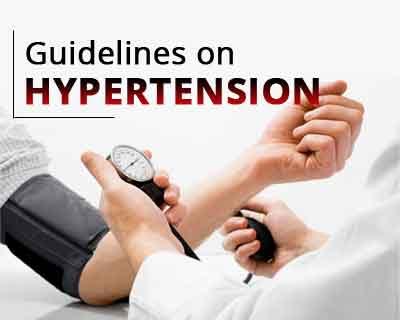- Home
- Editorial
- News
- Practice Guidelines
- Anesthesiology Guidelines
- Cancer Guidelines
- Cardiac Sciences Guidelines
- Critical Care Guidelines
- Dentistry Guidelines
- Dermatology Guidelines
- Diabetes and Endo Guidelines
- Diagnostics Guidelines
- ENT Guidelines
- Featured Practice Guidelines
- Gastroenterology Guidelines
- Geriatrics Guidelines
- Medicine Guidelines
- Nephrology Guidelines
- Neurosciences Guidelines
- Obs and Gynae Guidelines
- Ophthalmology Guidelines
- Orthopaedics Guidelines
- Paediatrics Guidelines
- Psychiatry Guidelines
- Pulmonology Guidelines
- Radiology Guidelines
- Surgery Guidelines
- Urology Guidelines
ACOG Updates Guidance on high BP in pregnancy

Washington D.C.—The American College of Obstetricians and Gynecologists (ACOG) has released an update on guidance on hypertension or high BP ( blood pressure) in pregnancy. It has discussed new ACC/AHA Criteria in the updates and is published in the January issue of Obstetrics & Gynecology.
High BP is one of the leading causes of maternal death during pregnancy all over the world. The new update "Gestational Hypertension and Preeclampsia" and “Chronic Hypertension in Pregnancy” will replace the association’s Hypertension in Pregnancy task force report developed in 2013.
“The task force was a tour de force in creating a comprehensive view of hypertensive diseases of pregnancy, including research,” said Christian Pettker, M.D., a lead author of the guidance. “The updated guidance provides clearer recommendations for the management of gestational hypertension with severe-range blood pressure, an emphasis on and instructions for timely treatment of acutely elevated blood pressures, and more defined recommendations for the management of pain in postoperative patients with hypertension.”
The latest Practice Bulletins also include discussion of recent ACOG’s guidance that conflicts with the American College of Cardiology (ACC) and the American Heart Association (AHA) new criteria for diagnosing hypertension in adults. The criteria classify blood pressure in four categories—normal, elevated, stage 1 hypertension and stage 2 hypertension.
A woman is considered to have gestational hypertension, or high blood pressure developed in pregnancy, after the first 20 weeks. Prior to that, hypertension is generally deemed to have predated the pregnancy and is considered chronic hypertension.
Key Updates are
- According to ACOG’s latest guidance, it is reasonable for obstetric care providers to continue to manage the patient in pregnancy as a chronic hypertensive based on the ACC/AHA recommendations.The ACC and AHA have recommended that nonpregnant patients who fall within the stage 1 hypertension category begin treatment if they have risk factors for cardiovascular disease.
- This new approach should continue to be an “active area of investigation” because it could potentially mislabel some women as abnormal who have only borderline or possibly inconsequential cases of blood pressure elevation.
“The new blood pressure ranges for nonpregnant women have a lower threshold for hypertension diagnosis compared to ACOG’s criteria,” said Pettker. “This will likely cause a general increase in patients classified as chronic hypertensive and will require shared decision-making by the ob-gyn and the patient regarding appropriate management in pregnancy.”
“The new criteria further challenge the idea that the 20-week mark can determine for every patient whether hypertension predates the pregnancy or is pregnancy-related,” said Pettker. “Ob-gyns will need to focus more on individualized care and may find it’s best to err on the side of caution because the appropriate treatment of hypertensive diseases in pregnancy may be the most important focus of our attempts to improve maternal mortality and morbidity in the United States.”
For more details click on the link: www.acog.org

Disclaimer: This site is primarily intended for healthcare professionals. Any content/information on this website does not replace the advice of medical and/or health professionals and should not be construed as medical/diagnostic advice/endorsement or prescription. Use of this site is subject to our terms of use, privacy policy, advertisement policy. © 2020 Minerva Medical Treatment Pvt Ltd